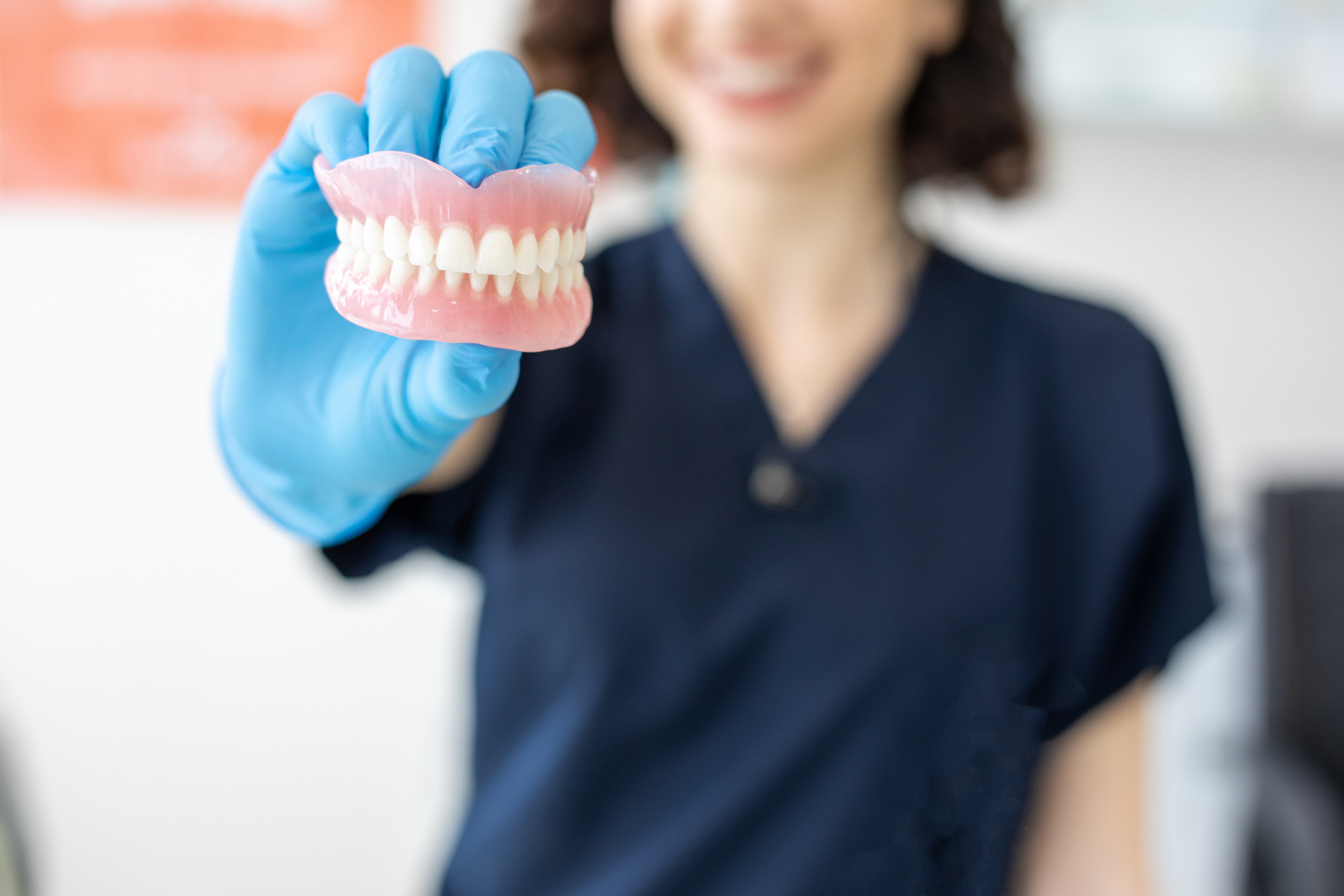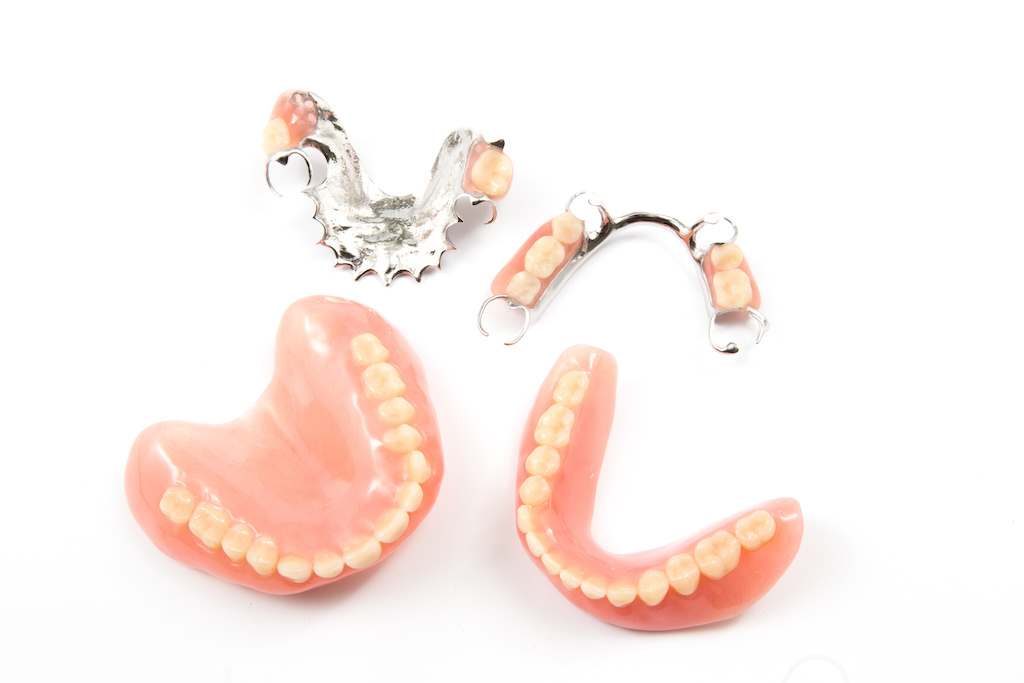Eating With Dentures: How to Adjust and Enjoy Your Meals
So, you’ve got yourself a brand new set of dentures, huh? Well, get ready to embark on a culinary adventure like no other! In this guide, we’ll show you how to adjust and actually enjoy your meals with those pearly white chompers of yours.
From choosing denture-friendly foods to mastering the art of chewing, we’ve got all the tips and tricks to make your dining experience a breeze.
And don’t worry, we’ll even help you deal with any discomfort that may arise along the way.
So put on your eating pants, because it’s time to dive headfirst into the world of eating with dentures!
Key Takeaways
– Regular check-ups with a dentist ensure a proper denture fit
– Opt for soft foods that are easier to chew
– Avoid sticky textures that can dislodge dentures
– Prioritize denture-friendly foods that require less effort to chew
Proper Denture Fit
To ensure a comfortable eating experience, it’s important for you to have properly-fitting dentures. Ill-fitting dentures can cause a lot of discomfort and make it difficult for you to enjoy your meals. When your dentures fit well, you’ll be able to chew your food properly and savor the flavors without any pain or irritation.
One of the key factors in achieving a proper denture fit is getting regular check-ups with your dentist. They’ll assess the condition of your dentures and make any necessary adjustments to ensure that they fit snugly in your mouth. It’s also important to clean your dentures thoroughly every day to prevent any buildup of bacteria or food particles that can cause gum irritation.
If you notice that your dentures feel loose or uncomfortable, it’s crucial to seek professional help as soon as possible. Your dentist will be able to identify the problem and make the necessary adjustments or provide you with new dentures if needed.
Choosing Denture-Friendly Foods
When it comes to choosing denture-friendly foods, there are a few key points to keep in mind.
Firstly, opt for soft food options that are easier to chew and won’t put unnecessary strain on your dentures.
Secondly, avoid sticky textures that can cause your dentures to become dislodged or uncomfortable.
Lastly, ensure proper chewing by taking smaller bites and thoroughly chewing your food to prevent any potential issues while eating with dentures.
Soft Food Options
You can easily find a variety of soft food options that are denture-friendly. Here are three tasty and easy-to-eat options:
1. Smoothies: Blend together your favorite fruits, vegetables, and yogurt for a nutritious and refreshing meal. You can also add protein powder or nut butter for extra sustenance. Smoothies aren’t only easy to consume, but they’re also a great way to incorporate essential vitamins and minerals into your diet.
2. Mashed Potatoes: Creamy and comforting, mashed potatoes are a classic choice for denture wearers. Opt for a smooth and lump-free texture by mashing them thoroughly. You can enhance the flavor by adding butter, sour cream, or cheese. If you prefer a healthier option, try using cauliflower instead of potatoes for a delicious and nutritious alternative.
3. Soups: Warm and soothing, soups are a fantastic option for those with dentures. Choose creamy soups like tomato bisque, butternut squash, or broccoli cheddar. Be sure to blend them well to eliminate any chunks. You can also add protein and fiber by including cooked vegetables, chicken, or lentils.
With these soft food options, eating with dentures can be both enjoyable and satisfying.
Avoiding Sticky Textures
When selecting foods that are denture-friendly, it’s important to avoid sticky textures. Sticky foods can cause your dentures to become dislodged or get stuck, which can be uncomfortable and embarrassing. To ensure a comfortable eating experience, opt for foods that are easy to chew and swallow.
Choose soft fruits like bananas and peaches instead of sticky fruits like dried apricots or raisins. Avoid sticky candies, such as caramels or taffy, and opt for soft chocolates or mints instead.
When it comes to bread, choose softer options like white bread or rolls instead of sticky bread like bagels or ciabatta. By avoiding sticky textures in your food choices, you can enjoy your meals with confidence and comfort.
Ensuring Proper Chewing
To ensure comfortable and efficient chewing with dentures, prioritize denture-friendly foods that require less effort when chewing. Here are three denture-friendly food options that you can enjoy without worrying about discomfort or difficulty:
1. Soft Foods: Opt for foods that are easy to chew and require minimal effort. Examples include mashed potatoes, scrambled eggs, cooked vegetables, and tender meats. These foods can be easily broken down and are less likely to cause any discomfort.
2. Moist Foods: Foods with a higher moisture content can make chewing easier and more comfortable. Consider incorporating soups, stews, and sauces into your meals. These can help lubricate your mouth and make it easier to chew your food.
3. Cut Food into Small Pieces: Cutting your food into smaller, bite-sized pieces can make it easier to chew and less likely to dislodge your dentures. This can include fruits, vegetables, and meats. Take your time and ensure that each bite is manageable and comfortable.
Chewing Techniques for Denture Wearers
To improve your chewing abilities with dentures, ensure that you engage in proper dental hygiene and visit your dentist regularly for adjustments. These steps are crucial for maintaining the functionality and comfort of your dentures.
When it comes to chewing techniques, there are a few strategies that can help you enjoy your meals without any difficulties.
Firstly, take smaller bites and cut your food into smaller pieces. This will make it easier for your dentures to handle and chew. It’s also important to chew slowly and deliberately, using both sides of your mouth to distribute the pressure evenly. This will prevent any strain on your jaw and gums.
Additionally, try to avoid sticky and hard foods that may be challenging to chew. Opt for softer options like cooked vegetables, tender meats, and moist desserts. If you find it difficult to chew certain foods, consider using denture adhesives or creams to enhance stability and improve your chewing experience.
Lastly, practice proper tongue and cheek placement while chewing. This can help keep your dentures in place and aid in the chewing process. Remember to remove your dentures at night and give your gums a rest.
Tips for Improving Taste and Sensation
To enhance your taste and sensory experience while eating with dentures, consider experimenting with different flavors and textures in your meals. Here are three tips to help you improve your enjoyment of food:
1. Season your meals: Adding herbs, spices, and condiments can help enhance the flavors of your dishes. Experiment with different seasonings to find what suits your taste buds best. For example, adding a dash of lemon juice can bring a tangy freshness to your fish or chicken dishes.
2. Opt for varied textures: Incorporating a mix of textures in your meals can make eating more enjoyable. Include crunchy vegetables, tender meats, and chewy grains to create a satisfying experience. For instance, adding roasted nuts to your salad can provide a delightful crunch while adding a creamy dressing can offer a smooth contrast.
3. Savor your food slowly: Take the time to appreciate each bite. Chew your food thoroughly to release its flavors and allow your taste buds to fully experience it. Swish the food around in your mouth to stimulate saliva production, which can help with the perception of flavors.
Dealing With Denture Discomfort
Are you experiencing discomfort with your dentures? Don’t worry, there are ways to manage sore spots and improve the fit of your dentures.
One option is to visit your dentist to make adjustments or get a new set of dentures.
In the meantime, try eating soft foods that are easier on your gums.
Managing Sore Spots
When eating with dentures, you may experience discomfort in certain areas known as sore spots due to the pressure exerted by the dentures on your gums. Managing these sore spots is essential to ensure a comfortable eating experience.
Here are three tips to help you deal with denture discomfort:
1. Adjust your dentures: If you notice sore spots, it may be necessary to make adjustments to your dentures. Visit your dentist to have them professionally adjusted to alleviate the pressure on your gums.
2. Use a denture adhesive: Applying a denture adhesive can help improve the fit of your dentures and reduce irritation. Follow the instructions provided by your dentist or on the adhesive product for best results.

3. Take breaks and practice proper oral hygiene: Give your gums a break by removing your dentures for a few hours each day. Additionally, maintaining good oral hygiene by regularly cleaning your dentures and gums can help prevent sore spots and discomfort.
Improving Denture Fit
If you experience discomfort while eating with dentures, there are steps you can take to improve the fit and alleviate any discomfort you may be feeling. One common cause of denture discomfort is an improper fit. If your dentures feel loose or are causing irritation, it may be time to visit your dentist for an adjustment. Your dentist can make necessary adjustments to ensure a better fit and reduce discomfort.
Another option is using denture adhesives. These adhesives can provide extra grip and stability, making your dentures feel more secure. However, it’s important to follow the instructions and use them sparingly.
Additionally, practicing good oral hygiene by cleaning your dentures regularly and maintaining a healthy mouth can also contribute to a better fit and overall comfort while eating with dentures.
Eating Soft Foods
Wondering how you can alleviate denture discomfort while still enjoying your meals? Eating soft foods can be a great way to minimize any discomfort you may experience while wearing dentures. Here are three tips to help you make the most of your meals:
1. Choose foods that are easy to chew: Opt for soft, tender foods that require minimal effort to chew, such as soups, stews, mashed potatoes, and cooked vegetables. Avoid hard or crunchy foods that can put unnecessary strain on your dentures.
2. Cut your food into smaller pieces: By cutting your food into smaller, bite-sized pieces, you can make it easier to chew and reduce the pressure on your dentures. Take your time and chew slowly to ensure proper digestion.
3. Use denture-friendly condiments: If you’re finding it difficult to enjoy certain foods due to their texture, try using denture-friendly condiments such as sauces, gravies, and dressings. These can help soften the food and make it more palatable.
Maintaining Oral Health With Dentures
To keep your mouth healthy while wearing dentures, it’s important to regularly clean and care for your prosthetic teeth. Maintaining good oral hygiene is crucial to prevent oral health problems such as gum disease and bad breath.
Start by removing your dentures and rinse them with warm water after every meal. This will help remove any food particles or debris that may have accumulated. Additionally, brush your dentures at least once a day using a soft-bristled brush and non-abrasive denture cleaner. Avoid using regular toothpaste as it can be too abrasive and damage the denture surface.
It’s also important to clean your gums, tongue, and the roof of your mouth using a soft-bristled toothbrush or a tongue cleaner. This will help remove bacteria and maintain a fresh breath.
Remember to soak your dentures overnight in a denture cleaning solution to keep them clean and prevent any odor-causing bacteria.
Lastly, don’t forget to schedule regular visits with your dentist for professional cleanings and to check the fit of your dentures. By following these simple steps, you can maintain good oral health and enjoy the benefits of wearing dentures.
Frequently Asked Questions
Can I Wear My Dentures While Sleeping?
You shouldn’t wear your dentures while sleeping. It’s important to give your gums and mouth a break.
During sleep, your mouth needs a chance to rest and recover from the pressure of wearing dentures all day. Plus, wearing dentures at night can increase the risk of infection and cause discomfort.
How Often Should I Replace My Dentures?
How often should you replace your dentures?
It’s recommended that you replace your dentures every 5-7 years. Over time, dentures can become worn down, lose their shape, and become less effective.
Regular check-ups with your dentist will help determine if it’s time for a replacement.
It’s important to replace your dentures to ensure optimal fit, function, and appearance, allowing you to continue enjoying your meals without any discomfort or difficulty.
Can I Eat Sticky or Crunchy Foods With Dentures?
You can definitely eat sticky or crunchy foods with dentures, but it’s important to take some precautions.
Make sure to cut sticky foods into smaller pieces to avoid dislodging your dentures.
Avoid biting directly into crunchy foods to prevent any damage.
Chew slowly and evenly on both sides of your mouth to maintain balance.
It may take some practice, but with time, you’ll be able to adjust and enjoy a wide variety of foods with your dentures.
Are There Any Specific Foods I Should Avoid With Dentures?
You should avoid certain foods when wearing dentures. Sticky or crunchy foods can be a challenge to eat and may cause your dentures to move or become dislodged. It’s best to avoid foods like caramel, hard candies, popcorn, and nuts.
These types of foods can stick to your dentures or put too much pressure on them, potentially causing damage. Stick to softer, easier-to-chew foods for a more comfortable eating experience with your dentures.
How Can I Prevent Denture-Related Bad Breath?
To prevent denture-related bad breath, there are a few things you can do.
First, make sure you clean your dentures thoroughly every day. This includes brushing them with a denture brush and soaking them overnight in a denture cleaner.
Additionally, don’t forget to clean your mouth and gums with a soft toothbrush or a tongue scraper.
Regular dental check-ups can also help identify and address any issues that may be causing bad breath.
Conclusion
In conclusion, adjusting to eating with dentures may take some time and practice, but with the right techniques and care, you can still enjoy your meals.
Ensuring a proper denture fit is crucial. Ill-fitting dentures can make eating difficult and uncomfortable. Regular visits to your dentist can help ensure that your dentures fit well and are adjusted as needed.
Choosing denture-friendly foods can also make a significant difference. Foods that are soft, easy to chew, and not too sticky can be more manageable with dentures. Avoiding hard, tough, or sticky foods can help prevent damage to your dentures and discomfort while eating.
Mastering chewing techniques is another important aspect. Start with small bites, chew slowly and evenly, and use both sides of your mouth to distribute the pressure evenly. This will help you adjust to the new sensation and improve your ability to chew effectively.
Enhancing taste and sensation can enhance your overall eating experience. Using spices, sauces, and seasonings can add flavor to your meals and make them more enjoyable. Additionally, using denture adhesives or cushions can help improve the fit and stability of your dentures, which can enhance your ability to taste and enjoy your food.
Managing any discomfort is essential. It is common to experience some soreness or irritation when you first start wearing dentures. However, if you experience persistent pain or discomfort, it is important to see your dentist for adjustments or repairs.
Remember to maintain good oral hygiene even with dentures. Brush your gums, tongue, and the roof of your mouth with a soft-bristled brush before inserting your dentures. Clean your dentures daily and soak them overnight in a denture cleanser solution. Regular dental check-ups are also necessary to ensure the health and proper care of your dentures.
By following these tips and techniques, you can adjust to eating with dentures and continue enjoying you this contact form r meals with confidence.



